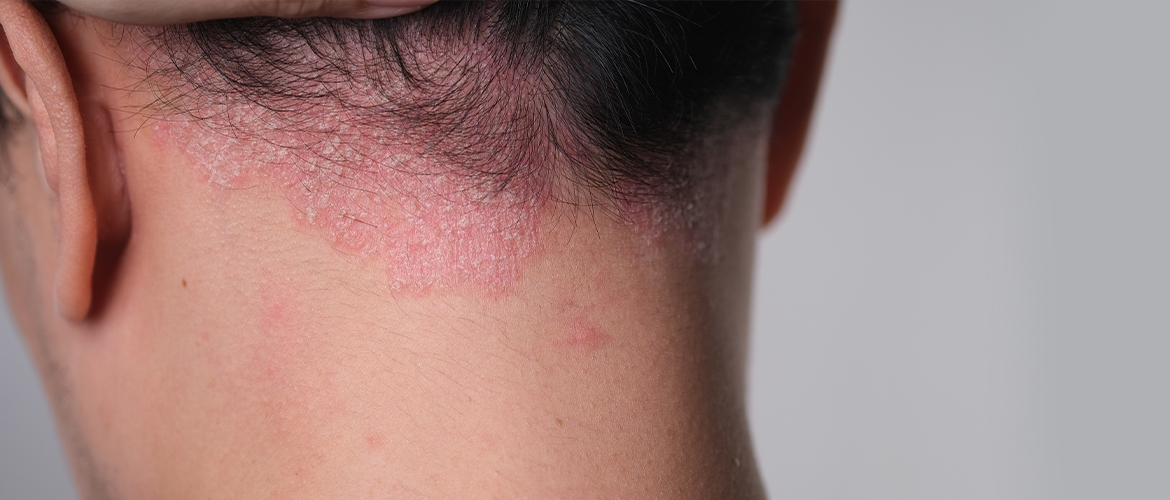Fungal infections on the scalp are more common than many realize and can significantly impact hair health. These infections if left untreated can lead to hair loss due to fungal infections on the scalp affecting both the physical appearance and psychological well-being of individuals. Understanding the causes, symptoms and treatments of fungal infections on the scalp is crucial for preventing hair loss and maintaining a healthy scalp.
What Are Fungal Infections On The Scalp?
Fungal infections on the hair scalp also known as tinea capitis or ringworm of the scalp are caused by dermatophytes a type of fungus that thrives in warm moist environments. These infections are highly contagious and can spread through direct contact with an infected person or by sharing personal items such as combs, hats and towels.
Causes of Fungal Infection of Scalp
Fungal Infections of Scalp are primarily caused by dermatophytes but other fungi such as Candida can also be responsible. The main factors contributing to the development of these infections include:
· Poor Hygiene: Inadequate washing and cleaning of the scalp can create an environment conducive to fungal growth.
· Humidity and Sweat: Excessive sweating and humid conditions provide an ideal breeding ground for fungi..
· Weakened Immune System: Individuals with weakened immune systems are more susceptible to fungal infections.
· Contact with Infected Individuals or Animals: Direct contact with infected persons or pets can spread the infection.
Symptoms of Fungal Infection on the Scalp
Recognizing the symptoms of a fungal infection on the scalp is the first step toward effective treatment. Common signs include:
· Itchy Scalp: Persistent itching is often one of the earliest symptoms.
· Red or Scaly Patches: The scalp may develop red inflamed patches that can be scaly or crusty.
· Hair Loss: Infected areas often experience hair loss leading to bald patches..
· Brittle Hair: Hair in the infected area may become brittle and break easily.
· Swollen Lymph Nodes: Swelling of the lymph nodes in the neck can occur in more severe cases.
How Fungal Infections Trigger Hair Loss
Hair loss due to scalp fungal infections occurs primarily because of the damage these infections cause to the hair follicles and the scalp. Here’s how it happens:
Inflammation and Follicle Damage
Fungal infections cause inflammation of the scalp leading to folliculitis, an inflammation of the hair follicles. This inflammation can weaken the hair follicles making them unable to hold the hair shaft securely. As a result the hair falls out easily leading to noticeable hair loss.
Scarring
In severe cases, fungal infections on the scalp can cause scarring. This scarring damages the hair follicles permanently preventing new hair from growing in the affected areas and resulting in permanent hair loss.
Scalp Fungal Infection Treatment
Effective fungal infection in the hair scalp treatment involves a combination of antifungal medications, good hygiene practices and sometimes lifestyle adjustments. Here are the main treatment options:
Antifungal medications
· Topical Antifungals: These include creams, and lotions that contain antifungal agents such as ketoconazole, terbinafine or clotrimazole. They are applied directly to the scalp to eliminate fungi. Dandruff is also a type of fungal infection that can be treated with anti-fungal shampoo.
· Oral Antifungals: In more severe cases, oral antifungal medications such as griseofulvin or itraconazole may be prescribed. These medications work systemically to eradicate the infection from within.
Good hygiene practices
Maintaining good scalp hygiene is crucial for both the treatment and prevention of fungal infections. This includes:
· Regular Hair Washing: Washing the hair and scalp regularly with antifungal shampoos helps remove fungi and prevents their proliferation.
· Avoiding Sharing Personal Items: Personal items such as combs, towels and hats should not be shared to prevent the spread of infection.
· Keeping the Scalp Dry: Ensuring the scalp is dry and not excessively sweaty can prevent fungal growth.
Lifestyle adjustments
Certain lifestyle changes can help manage and prevent scalp fungal infections.
· Healthy Diet: A diet rich in vitamins and minerals supports the immune system and overall scalp health.
· Stress Management: Reducing stress can help boost the immune system and reduce susceptibility to infections.
· Regular Scalp Examinations: Regularly checking the scalp for signs of infection can ensure early detection and treatment.
Effective Solutions for Fungal Skin Infections
Addressing fungal skin infections necessitates reliable antifungal treatments like Clocip antifungal cream. These remedies effectively target conditions such as ringworm halting the spread of the infection and easing symptoms like itchiness and rashes. The trusted antifungal cream offers proven relief and clears symptoms making them dependable solutions for managing fungal skin infections.
Fungal infections on the scalp can lead to significant hair loss if not properly managed. Understanding the causes and symptoms of these infections is essential for early detection and effective treatment. By incorporating a combination of antifungal medications, good hygiene practices and lifestyle adjustments individuals can successfully treat fungal infection in scalp and prevent hair loss. For persistent or severe cases it is important to seek medical advice to ensure appropriate treatment and avoid complications.



